Whether writing a research article or a grant proposal, it can be difficult to pinpoint the sections and areas that need further improvement. It is useful to have a set of tactics on hand to address the work. Patrick Dunleavy outlines seven upgrade strategies for a problematic article or chapter: Do one thing well. Flatten the structure. Say it once, say it right. Try paragraph re-planning. Make the motivation clearer. Strengthen the argument tokens. Improve the data and exhibits.
I guess every researcher and academic writer has often faced the task of trying to upgrade a piece of work that just will not come out right. Sometimes it’s clear what the problem is, and colleagues, friends or supervisors who read the article or chapter can make concrete suggestions for change. But often it’s not so clear-cut. Readers are cordial but obviously unenthused. There’s nothing massively wrong, but the piece feels thin or unconvincing in some diffuse way.
Sometimes too the problem occurs well before you want anyone else to read your text. If it is a one-off piece of research then maybe it can just be filed for later reconsideration. But often the research plan in a grant bid, or the book contents page crafted a year ago, or the PhD structure devised two or more years ago, mean that an article or chapter just has to get done. Here an unsatisfactory first draft is not just much less than you’d hoped for at the distant planning stage, but instead a depressing roadblock to completing a whole, long-term project.
At times like these it is handy to have a set of standard things to try to improve matters — familiar strategies that you can frequently use, deploying them quickly because you’re deliberately not treating each article or chapter as sui generis or unique. Everyone has their own moves for coping with the upgrade task. Here are my top seven, in hopes that some of them work for you.
1. Do one thing well. Many writing problems stem from trying to do too much within the same few pages, causing texts to inflate beyond journal length limits (often fatal for passing review), or just introducing ‘confuser’ themes that referees love to jump on. ‘I’m not clear if the author is advocating X, or trying to do Y’. Keeping it simple (within well defended boundaries) makes things clearer, so long as your paper is also substantive i.e don’t go from this point to try and ‘salami slice’ a given piece of research across multiple journal articles. A nice blog by Pat Thomson puts this point alongside other common mistakes.
2. Flatten the structure. All articles in social science should be 8,000 words or less and most chapters are similar or verge up to 10,000 words. Given the attention span of serious, research readers, you need a sub-heading about every 2,000 words or so — that’s just four or five main sub-headings in total. They should all be first-order sub-heads, at the same level, and preferably dividing the text up into similar-sized chunks, that come in a predictable way and have a common rhythm. If you have two or three tiers of sub-headings in a hierarchy, make it simpler.
In other fields, length limits are much less — e.g. just 3,000 words for medical journal articles. So the numbers of subheadings needed here will be correspondingly reduced. Each of your section headings should be substantive (not just formal, conventional, vacuous or interogative). Ideally they should give readers a logically sequenced set of narrative cues, about what you did, and what you have found out. You can add a short Conclusions section with its own smaller kind of heading. Also, never label the beginning bit of text ‘Introduction’ — this is already blindingly obvious.

Many structural problems and inaccessible text are caused by people using outliner software to create overly hierarchized sets of headings at multiple levels, made worse still by adding complex numbering systems (e.g section 2.1.4.3) to ‘help’ readers. At an extreme, an analytic over-fragmentation of the text results, with sections, sub-sections and sub-sub sections proliferating in bizarre complexity. The text can become like the traditional British tinned desert called ‘fruit cocktail’, which contains many different kinds of fruit, but all in small cubes and smothered in a syrup so thick that you cannot taste at all what any component is.
The writing coach, Thomas Basboll, shrewdly remarked that :
A well-written journal article will present a single, easily identifiable claim; it will show that something is the case… The [typical academic] article will consist of roughly 40 paragraphs. Five of them will provide the introductory and concluding remarks. Five of them will establish a general, human background. Five of them will state the theory that informs the analysis. Five of them will state the method by which the data was gathered. The analysis (or “results” section) will make roughly three overarching claims (that support the main thesis) in three five-paragraph sections. The implications of the research will be outlined in five paragraphs. These are ball-park figures, not hard and fast rules, but “knowing” something for academic purposes means being able to articulate yourself in roughly these proportions.
3. Say it once, say it right. Nothing is so corrosive of readers’ confidence in a writer than repeating things. Academic readers are not like soap opera fans — they do not need a thing previewed, then actually said, then resaid, and then summarized. So it a bad idea to take one decent point and fragment it across your text in little bits. If your current structure is forcing you to do this, recast it to make this problem go away.
Simple, big block structures are generally best. Complex structures, with points developed recursively on in frequent discrete iterations, are easier to mess up. Close to every nuance of your own argument, you may well feel that you are thematically advancing, embroidering and extending your arguments each time you come back to a linked point. But readers will just see repetition. So, say each point once— and say it right first time.
This motto also has resonance at the micro-level. Fellow scientists or academics normally do not need points to be so hammered home that every tiny scintilla of meaning has been triple-locked in case some doubt remains. This way lies turgid prose. (As Voltaire shrewdly remarked: ‘The secret of being a bore is to say everything’).
4. Try paragraph re-planning, as discussed in my separate blogpost. This is a great technique for really helping you understand what you have done/got in the existing draft of your article or chapter. Rachael Cayley has a similar approach, which she calls ‘reverse outlining’. The core idea is to start with your finished text and then to resurface a detailed, paragraph-by-paragraph structure from that. Looking at this synoptic view of your whole text, you should find it easier to come up with an alternative Plan B sequence for your text. Unless you are a genius writer already, re-modelling text is an inescapable burden at multiple stages of securing acceptance by a journal.
5. Make the motivation clearer. Give readers a stronger sense of why the research has been done, why the topic is salient and how the findings illuminate important problems. Researchers who live with their topic over months and years often lose track of why they started, why they shaped the study as they did, and what the significance of their findings is for a larger audience. If a text is not working, or not quite working, the author is often too close-up to the detail of the findings, too convinced that the study could only have been done this way and that its importance is ‘obvious’. Being unable to write an effective conclusion is a good ‘tell’ for this problem — an apparently separate symptom that is actually closely linked.
Trying to achieve a high impact start for an article (or a clean, forward-looking beginning to each chapter in a book or PhD) can help readers to better appreciate a motive for reading on. A quick start usually helps readers commit to learning more.
6. Strengthen the argument tokens. At research level every paragraph draws on ‘tokens’ to sustain the case being made — which might be literature citations, supportive quotations, empirical evidence, or systematic data presented in charts or tables (see point 7). On citations, quotes or evidence it is usually worthwhile to ask if your search and presentation could be made more convincing — for instance, by multiplying references, showing evidence of systematic and inclusive search, more methodical evidence-gathering, or simply updating and refreshing a literature search that is now a little dated. People often do a literature search at an early stage of their research, when they only understand their topic rather poorly — but then neglect to do a ‘top up’ search just before submission, when they are likely to be much better at recognizing material that is relevant.
7. Improve the data and exhibits. This works at two levels. First, at an overall level it is important to design effective exhibits that display in a consistent way and follow good design principles. Second, at the level of each chart, table or diagram, make sure you provide full and accurate labelling of what is being shown, and that the data being reported are in a form that will matter to readers — not ‘dead on arrival’.
This post has been taken from LSE’s Impact of Social Sciences blog and is available from this link. This piece was originally published on the Writing For Research blog and is reposted with the author’s permission.
To follow up these ideas in more detail see this book: Patrick Dunleavy, ‘Authoring a PhD’ (Palgrave, 2003) or the Kindle edition, where Chapter 5 covers ‘Writing clearly’ and Chapter 6 ‘Developing as a Writer’.
There is also very useful advice on Rachael Cayley’s blog Explorations of Style and on Thomas Bassboll’s blog ‘Research as a second language’.





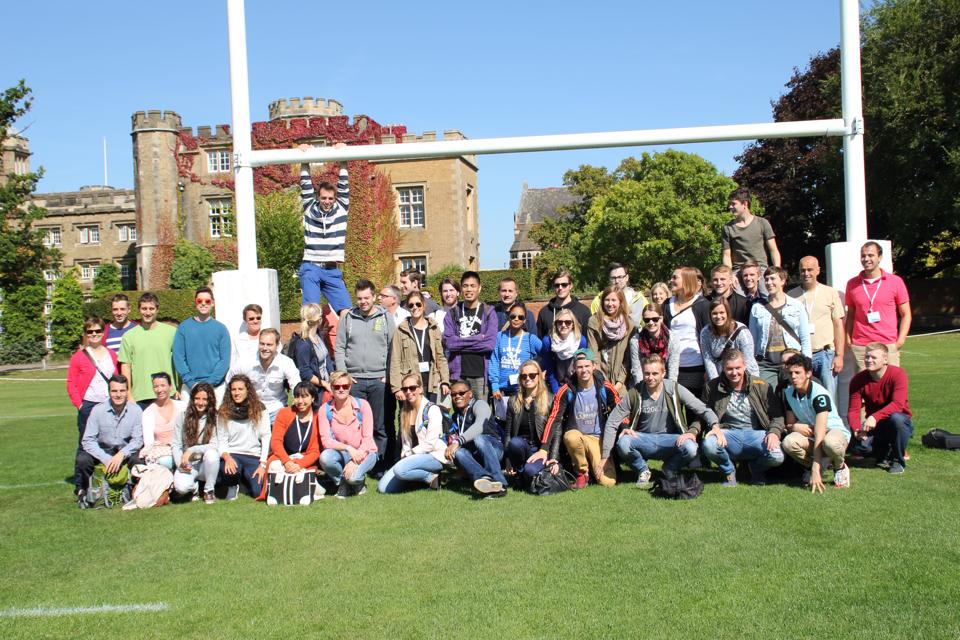

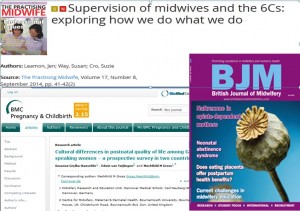
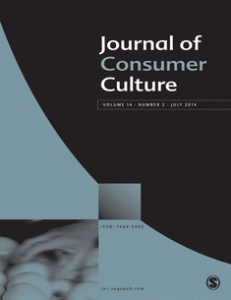



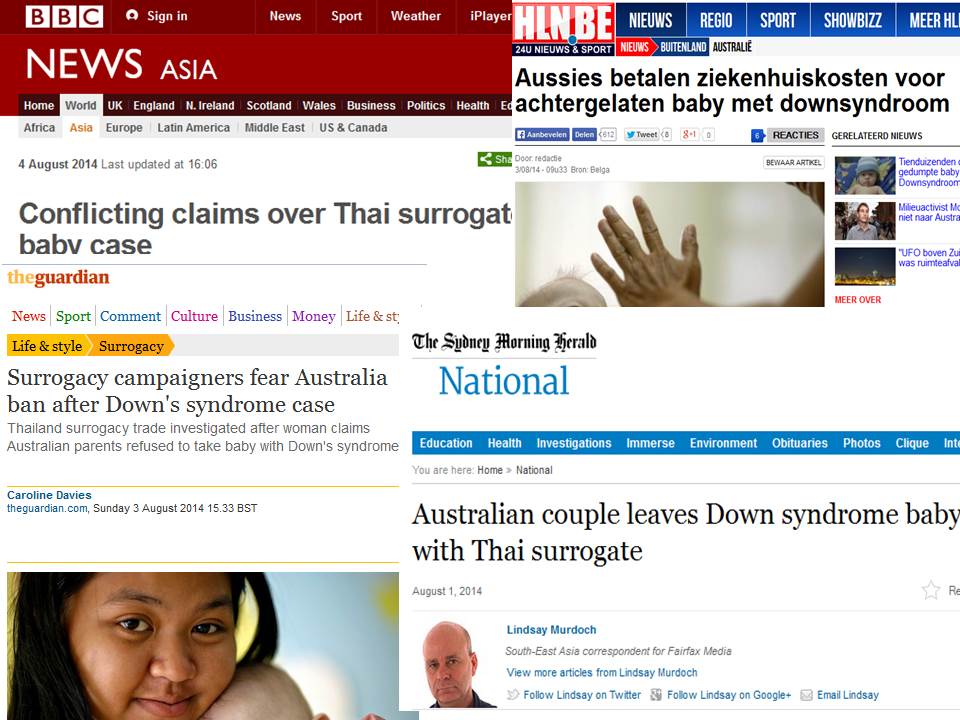



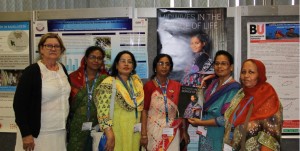













 REF Code of Practice consultation is open!
REF Code of Practice consultation is open! BU Leads AI-Driven Work Package in EU Horizon SUSHEAS Project
BU Leads AI-Driven Work Package in EU Horizon SUSHEAS Project Evidence Synthesis Centre open at Kathmandu University
Evidence Synthesis Centre open at Kathmandu University Expand Your Impact: Collaboration and Networking Workshops for Researchers
Expand Your Impact: Collaboration and Networking Workshops for Researchers ECR Funding Open Call: Research Culture & Community Grant – Apply now
ECR Funding Open Call: Research Culture & Community Grant – Apply now ECR Funding Open Call: Research Culture & Community Grant – Application Deadline Friday 12 December
ECR Funding Open Call: Research Culture & Community Grant – Application Deadline Friday 12 December MSCA Postdoctoral Fellowships 2025 Call
MSCA Postdoctoral Fellowships 2025 Call ERC Advanced Grant 2025 Webinar
ERC Advanced Grant 2025 Webinar Update on UKRO services
Update on UKRO services European research project exploring use of ‘virtual twins’ to better manage metabolic associated fatty liver disease
European research project exploring use of ‘virtual twins’ to better manage metabolic associated fatty liver disease